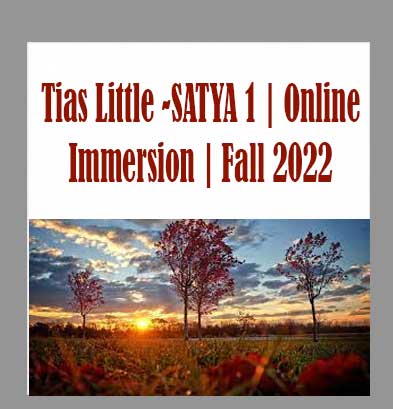Description
Jason Ellis, Michael Perlis & Donn Posner – PESI – 2017 Principles and Practice of CBT-I: Cognitive Behavioral Therapy for Insomnia download, Jason Ellis, Michael Perlis & Donn Posner – PESI – 2017 Principles and Practice of CBT-I: Cognitive Behavioral Therapy for Insomnia review, Jason Ellis, Michael Perlis & Donn Posner – PESI – 2017 Principles and Practice of CBT-I: Cognitive Behavioral Therapy for Insomnia free
Jason Ellis, Michael Perlis & Donn Posner – PESI – 2017 Principles and Practice of CBT-I: Cognitive Behavioral Therapy for Insomnia
Cognitive Behavioral Therapy for Insomnia (CBT-I) is now recommended as the first line treatment for chronic insomnia. This recommendation was, interestingly enough, made by the second largest medical organization in the United States (The ACP) and was published in the Annals of Internal Medicine.
The recommendation is, in part, based on the following findings.
- CBT-I is as efficacious and effective as pharmacotherapy in the short run, and is more durable in the long run
- CBT-I has a more benign side effect profile than pharmacotherapy
- CBT-I yields substantial improvement in sleep continuity, and does so largely irrespective of medical or psychiatric comorbidity.
- CBT-I directly targets the factors that are thought to perpetuate insomnia (i.e., the mismatch between sleep opportunity and sleep ability).
- CBT-I has been shown to work well even with patients with a long history of using hypnotics
The Penn Basic CBT-I Course is a two day intensive review of the principles and practice of this intervention. The 16 hour training, along with the conduct of practicum cases with supervision (peer consultation from credentialed BSM individuals [or established experts]) and targeted readings (Tx manuals and practice papers) should position established clinicians to 1) reliably and effectively deliver CBT-I and 2) be eligible for the credentialing exam that is in development by the SBSM and related agencies.
Speakers
Donn Posner, PhD, DBSM
Donn Posner, PhD, DBSM, is the Founder and President of Sleepwell Consultants and provides consultation to organizations and individuals on a wide variety of sleep health issues including insomnia, circadian dysrhythmia, CPAP adherence, and parasomnias. He is an Adjunct Clinical Associate Professor in the Department of Psychiatry and Behavioral Sciences at the Stanford University School of Medicine and a consulting psychologist for the Palo Alto VA. Dr. Posner works on a number of grants exploring the effects of CBT-I in Gulf War Veterans, and Veterans with insomnia and Mild Traumatic Brain Injury. He is also conducting a pilot aimed at using CBT-I techniques to decrease fatigue in breast cancer survivors by increasing total sleep time. Dr. Posner spent 25 years as the Director of Behavioral Sleep Medicine for the Sleep Disorders Center of Lifespan Hospitals and was a Clinical Associate Professor in the Department of Psychiatry and Human Behavior at the Warren Alpert School of Medicine at Brown University. He is a member of the American Academy of Sleep Medicine and is one of the first Certified Behavioral Sleep Medicine specialists recognized by that group. He is a founding member of the Society of Behavioral Sleep Medicine, and he has achieved the status of Diplomate of Behavioral Sleep Medicine (DBSM).
Speaker Disclosures:
Financial: Dr. Donn Posner is the founder and president of Sleepwell Consultants and has employment relationships with the Stanford University School of Medicine and the Palo Alto Veterans Institute for Research. He serves on the advisory board for Dawn Health, Delta Sleep.io, Brain Train 2020 LTD, and iSleep Clinic. Dr. Posner receives a speaking honorarium and recording royalties from PESI, Inc. All relevant financial relationships with ineligible organizations have been mitigated.
Non-financial: Dr. Donn Posner is a member of the American Academy of Sleep Medicine, the American Psychological Association, the Society of Behavioral Sleep Medicine, and the Association for Behavioral and Cognitive Therapies.
Michael Perlis, PhD
University of Pennsylvania Perelman School of Medicine
Michael L. Perlis, PhD is internationally known for his work in the area of Behavioral Sleep Medicine (BSM). He is a coauthor of the first text book in this field and he is the senior author of a published CBT-I treatment manual and a larger text summarizing all BSM treatments. His research includes neurocognitive phenomena in insomnia, the cognitive and/or behavior effects of sedative hypnotics and placebos, the development of alternative treatment approaches for insomnia, and sleep in depression. His work has been, and continues to be, funded by the National Institutes of Health and he has published more than 100 articles and chapters on the sleep research related topics.
In addition to his academic endeavors, he has served on the editorial boards of Sleep, the Journal of Sleep Research, the journal of Sleep Medicine Research and the journal of Behavioral Sleep Medicine. Dr. Perlis has also served as a member, or chair, of several committees and task forces of the Sleep Research Society and the American Academy of Sleep Medicine and he was a founding member of the Society of Behavioral Sleep Medicine and served as the society’s first president (2010-2011).
Speaker Disclosures:
Financial: Financial: Michael Perlis has employment relationships with the University of Freiburg and the University of Pennsylvania. He receives royalties as a published author. Michael Perlis receives a consulting fee from Anavex Life Sciences and Nexalin Technology. He receives grants Jazz Pharmaceuticals. Michael Perlis receives a speaking honorarium and recording royalties from PESI, Inc. All relevant financial relationships with ineligible organizations have been mitigated.
Non-financial: Michael Perlis is a member of the Sleep Research Society, the Association for Behavioral & Cognitive Therapy, and the American Academy of Sleep Medicine. He serves on several editorial boards, for a complete list contact PESI, Inc.
Jason Ellis, PhD
Jason Ellis, PhD, is a Professor of Sleep Science and Director of the Northumbria Sleep Laboratory and Clinic in the United Kingdom. He is a qualified Somnologist – Expert in Behavioural Sleep Medicine from European Sleep Research Society and a Practicing Health Psychologist under the HCPC. He splits his time between his basic research interests: the pathophysiology of sleep disorders (Insomnia, Restless Legs Syndrome, and Circadian Rhythm Disorders), the natural history of Insomnia, and his applied work on Cognitive Behavioral Therapy for Insomnia (CBT-I). Within the latter framework he examines the impact of novel adjunct therapies, the influence of social factors on adherence, and the effective delivery of CBT-I in complex cases and environments. He has worked within the National Health Service in the United Kingdom, delivering CBT-I to individuals with a range of physical and psychological conditions and serves on the editorial boards of Behavioral Sleep Medicine and Sleep Health. He has consulted for various industries and third-sector organizations and provided national guidelines to the British and Scottish governments on the identification and management of sleep problems. He is a serious advocate of public engagement and professional education with regard to behavioral sleep medicine and regularly trains CBT-I to clinicians and primary care physicians in the United Kingdom.
Target Audience
Clinical psychologists, clinical trainees, counselors, PhD/NP level nurses, and physicians interested in the assessment and treatment of insomnia
Outline
DAY ONE
- Welcome announcements and orientation
- Basics of sleep and behavioral model of insomnia
- Pharmacological and behavioral treatment options for insomnia
- Assessment of insomnia Part I-Definition, differential diagnosis, indications for treatment.
- Session 1– Assessment Part 2-CBT-I forms, devices, setting up sleep diaries
- Session 2– Treatment planning, setting up sleep restriction and stimulus control
DAY TWO
- Session 3– Adherence issues, problem solving and sleep hygiene.
- Session 4– Cognitive Therapy- General and targeted therapies
- Session 5, 6, & 7– Titration of sleep window, treatment delivery, therapist factors, and charting.
- Session 8– Relapse prevention
- Concluding Remarks
Objectives
- Articulate the basics of sleep nomenclature including sleep period, phase, continuity, and architecture.
- Discriminate acute insomnia from Insomnia Disorder and articulate the importance of treating the chronic form as a specifically targeted co-morbidity.
- Assess for the most common intrinsic sleep disorders such as OSA, RLS, PLMS, circadian rhythm disorders, and narcolepsy.
- Evaluate the common medications used in the treatment of insomnia and understand their relative strengths and weaknesses.
- Communicate the relative efficacy of pharmacotherapy and cognitive behavioral therapies for insomnia.
- Communicate the evidence for the efficacy of CBT-I for both primary and co-morbid insomnia disorder.
- Apply the principles of the Spielman model of insomnia and employ it in the delivery of CBT-I.
- Apply the principles of Borbely’s two-process model of sleep regulation and demonstrate how to utilize this concept in the deployment of CBT-I.
- Score and analyze patient sleep diary data, and create a treatment plan based upon the data in the course of CBT-I treatment.
- Apply the techniques of Sleep Restriction therapy to the treatment of chronic Insomnia.
- Apply the techniques of Stimulus Control to the treatment of chronic Insomnia
- Educate patients in sleep hygiene principles and tailor to individual needs.
- Apply the techniques of cognitive therapeutic strategies to the treatment of chronic insomnia.
- Calculate sleep efficiency and titrate patient sleep windows
- Anticipate, identify and problem solve common resistances in CBT-I.
- Implement an action plan to prevent patient relapse.
Frequently Asked Questions:
- Innovative Business Model:
- Embrace the reality of a genuine business! Our approach involves forming a group buy, where we collectively share the costs among members. Using these funds, we purchase sought-after courses from sale pages and make them accessible to individuals facing financial constraints. Despite potential reservations from the authors, our customers appreciate the affordability and accessibility we provide.
- The Legal Landscape: Yes and No:
- The legality of our operations falls into a gray area. While we lack explicit approval from the course authors for resale, there’s a technicality at play. When procuring the course, the author didn’t specify any restrictions on resale. This legal nuance presents both an opportunity for us and a boon for those seeking budget-friendly access.
- Quality Assurance: Unveiling the Real Deal:
- Delving into the heart of the matter – quality. Acquiring the course directly from the sale page ensures that all documents and materials are identical to those obtained through conventional means. However, our differentiator lies in going beyond personal study; we take an extra step by reselling. It’s important to note that we are not the official course providers, meaning certain premium services aren’t included in our package:
- No coaching calls or scheduled sessions with the author.
- No access to the author’s private Facebook group or web portal.
- No entry to the author’s exclusive membership forum.
- No direct email support from the author or their team.
We operate independently, aiming to bridge the affordability gap without the additional services offered by official course channels. Your understanding of our unique approach is greatly appreciated.
- Delving into the heart of the matter – quality. Acquiring the course directly from the sale page ensures that all documents and materials are identical to those obtained through conventional means. However, our differentiator lies in going beyond personal study; we take an extra step by reselling. It’s important to note that we are not the official course providers, meaning certain premium services aren’t included in our package:
Refund is acceptable:
- Firstly, item is not as explained
- Secondly, Item do not work the way it should.
- Thirdly, and most importantly, support extension can not be used.
Thank you for choosing us! We’re so happy that you feel comfortable enough with us to forward your business here.








Reviews
There are no reviews yet.